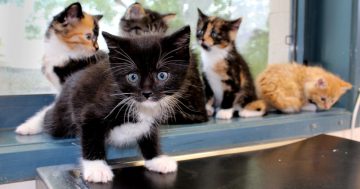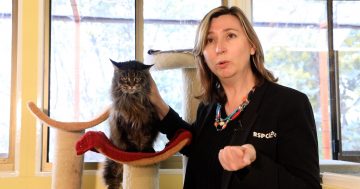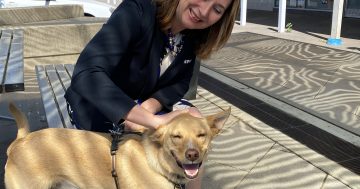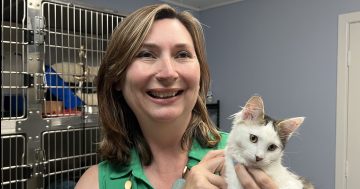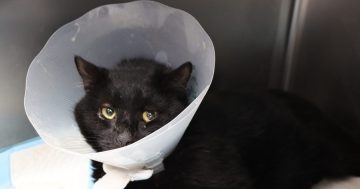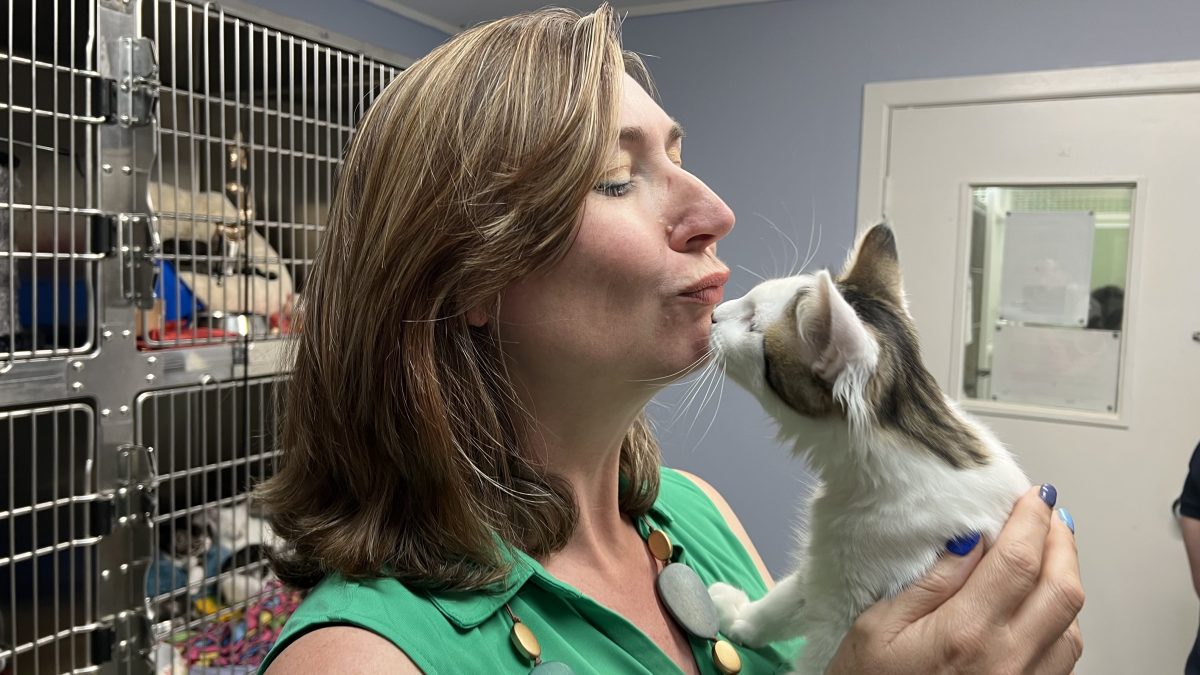
RSPCA ACT CEO Michelle Robertson has spoken about the importance of microchipping. Photo: Travis Radford.
A furry stowaway gave his owners quite a surprise when they realised he had snuck into a neighbour’s car for an interstate adventure.
“I actually love this story – it’s a really, really interesting story, it doesn’t happen a lot!” RSPCA ACT CEO Michelle Robertson said about the tale of ‘Obama’ the cat.
Earlier this year, Obama (yes, the same spelling as the former US president) left his home in Sydney, stowed away in the car then was only discovered after he had been driven to Canberra.
Ms Robertson said Obama arrived in the RSPCA ACT’s care with a microchip. When the team phoned his owners, they were “most surprised to hear their cat was in Canberra”.
It turned out he loved jumping into people’s cars, including those of neighbours.
“So he must have just jumped into a neighbour’s car and they didn’t realise they had a cat in there,” Ms Robertson said.
She said his owners’ reactions changed from being perplexed, to concerned, to overjoyed.
“It was a whole range of emotions!” she said.
It’s not the only incredible story of a lost pet getting home.
Earlier this year, Region reported how another cat was reunited with his owner after six years apart – again thanks to microchipping.
These stories illustrate the importance of checking your pet’s microchip details.
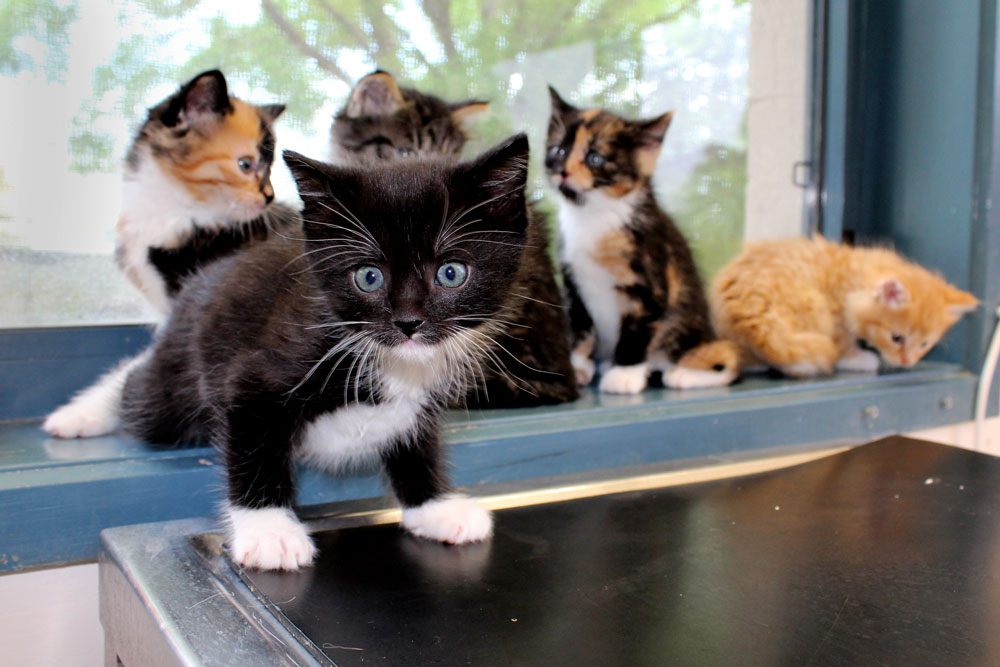
Some of the kittens recently surrendered to the RSPCA ACT shelter. Picture: Supplied.
RSPCA ACT reminded pet owners about the importance of updated microchips as part of National Check The Chip Day earlier this week. The day explains that an effective safety net system exists to help owners find their lost animals, but only works if details are up to date.
“Canberra has proven over and over to be a community of responsible pet lovers and it’s really easy to overlook your personal details on your pet’s microchip,” Ms Robertson said.
A total of 340 lost pets were reclaimed by their owners over the past year by RSPCA ACT, largely because those owners had microchipped their pets and kept details current.
“People move interstate with their pets all the time, family situations and ownership of animals can change, sometimes family members inherit pets and quite accidentally those basic microchip details like name, address and telephone number become incorrect,” Ms Robertson said.
“Our animal shelter is at capacity and even when you think your pet is healthy, if they’re found and brought to us and we can’t identify you as the owner, that animal could remain in our care for weeks or even longer.
“We will always look after every animal who arrives at our shelter but if we can quickly reunite pets and owners, that allows us to concentrate on the animals who are in urgent need of help and importantly get families back together quickly and alleviate distress.”
Owners can visit this website to find where their pet’s chip is registered. All personal details can be updated on the website. You will need your pet’s microchip number.












